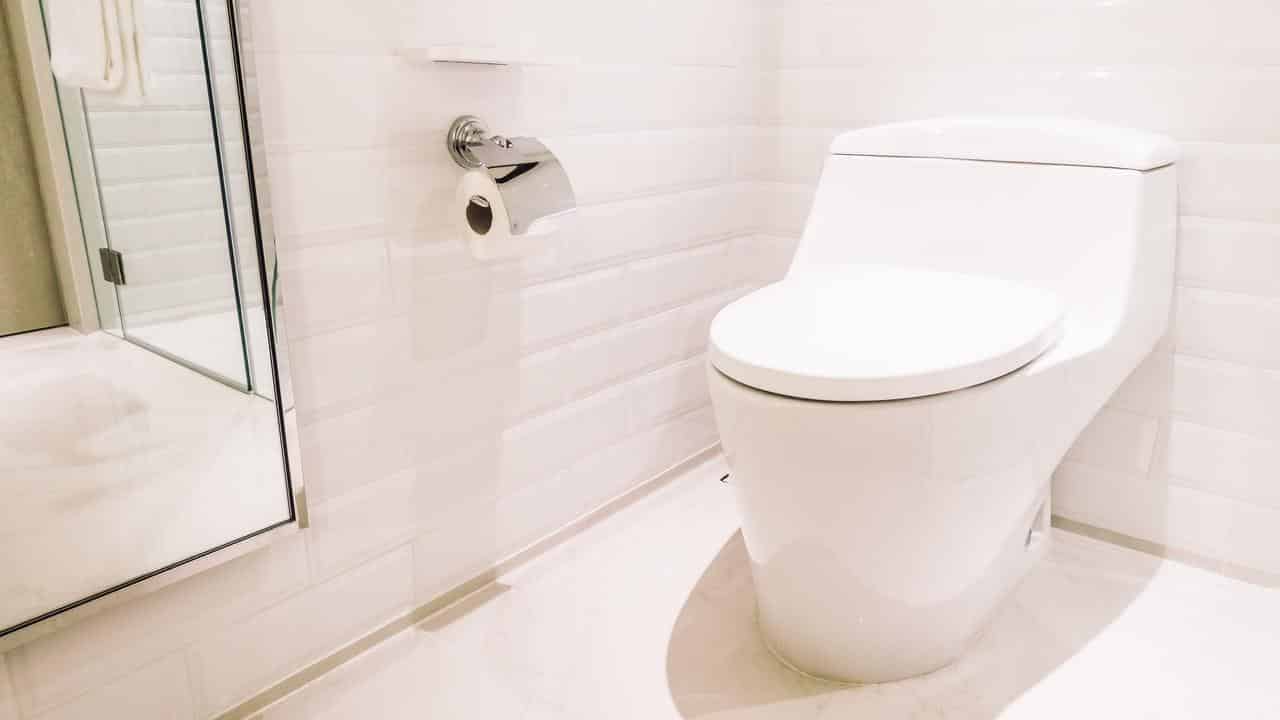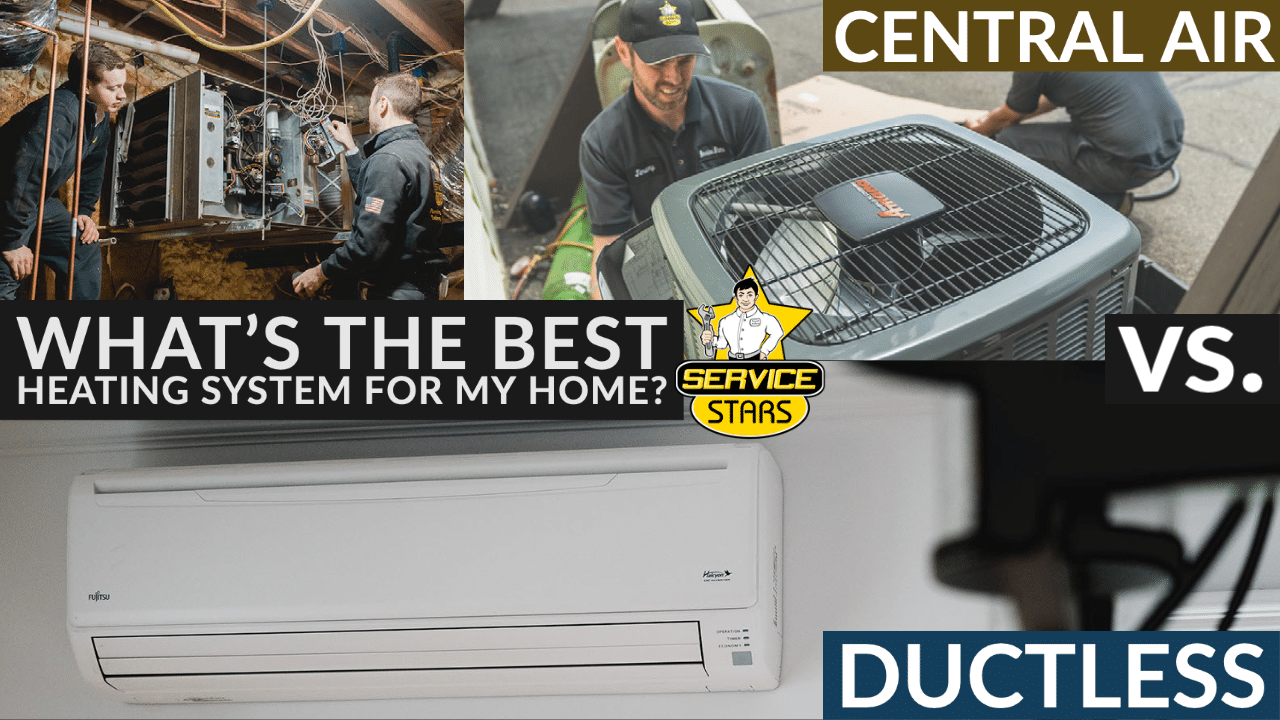What’s the RIGHT Water Heater for My Home?
Summary: Gas or Oil? Tankless or Indirect? What about Electric? As summer comes to a close and the chilly weather of fall and winter starts to roll in, the heating systems in our homes get to stretch their legs and start running to keep us and our families warm. We help you choose among the various water heater options that best...
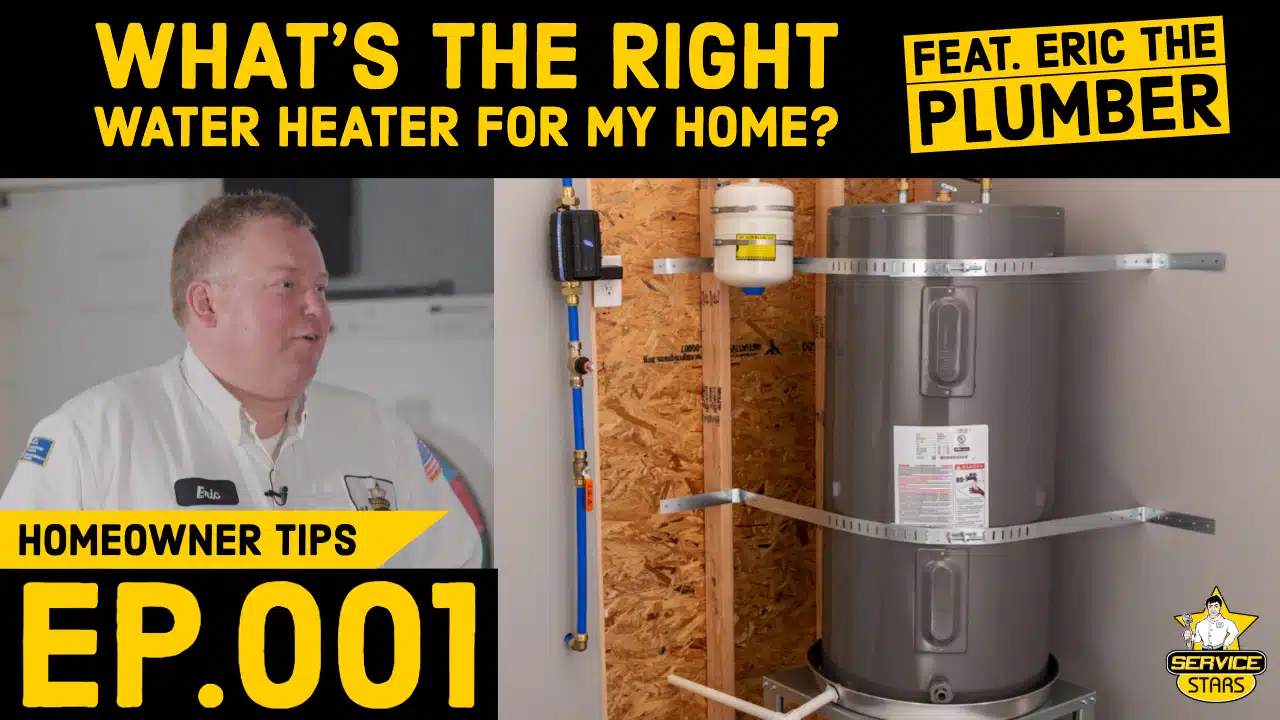

Gas or Oil? Tankless or Indirect? What about Electric?
As summer comes to a close and the chilly weather of fall and winter starts to roll in, the heating systems in our homes get to stretch their legs and start running to keep us and our families warm. We help you choose among the various water heater options that best suit your home and climate.
It’s not just the air in our home that we want warm; our hot water is important too! In this post, we’ll go over water heater options for your home and understanding the different types to narrow it down.
The number of variations and sizes of water heater options can be mind-boggling for homeowners to choose from. There doesn’t seem to be a one-size-fits-all solution to the question of what’s the RIGHT water heater for your home.
To help our readers who came here wondering about which one they should purchase, we interviewed one of our master plumbers, Eric! He gives his personal insight into the matter with his experience working on them for many years. Take a look at the video above!
We know not everyone is in the spot to watch a 6-minute video on water heater options, so here’s a summary of what was mentioned:
Common Types of Water Heaters Available
- Electric
- Propane/Natural Gas
- Oil
- Tankless
- Indirect
Electric Water Heaters
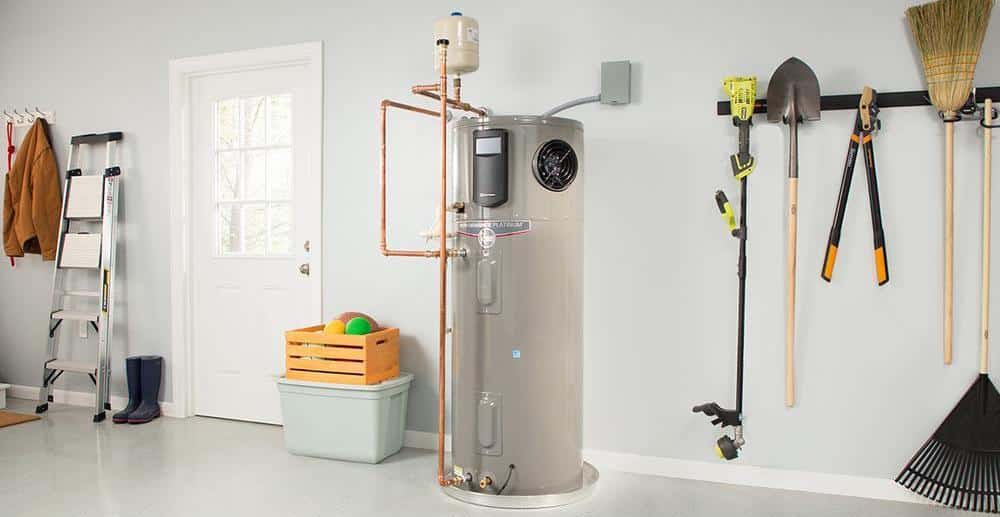
Pros
- Cheapest Type to Purchase Unit
- Cheapest Type to Install in a Home
Cons
- Most Expensive Costs of Operation - High Electric Bills
- Very Slow Recovery Time to Heat Up Water
- Relatively Large Units - Plan for Space To Install It
- Inefficient Compared to Other Types Available
This type of water heater has the lowest upfront costs to buy and install, but the savings made could be negated if it experiences heavy use, such as multiple consecutive hot showers in the morning by a family of 3+.
High consecutive use also requires a lot more time to refill and heat the new water, which makes for a higher electric bill overall and possibly running out of hot water in the moment.
It can be a good fit for 1-2 people living in a small apartment, where both the amount of use and the size of the tank needed is relatively low.
Propane/Natural Gas Water Heaters
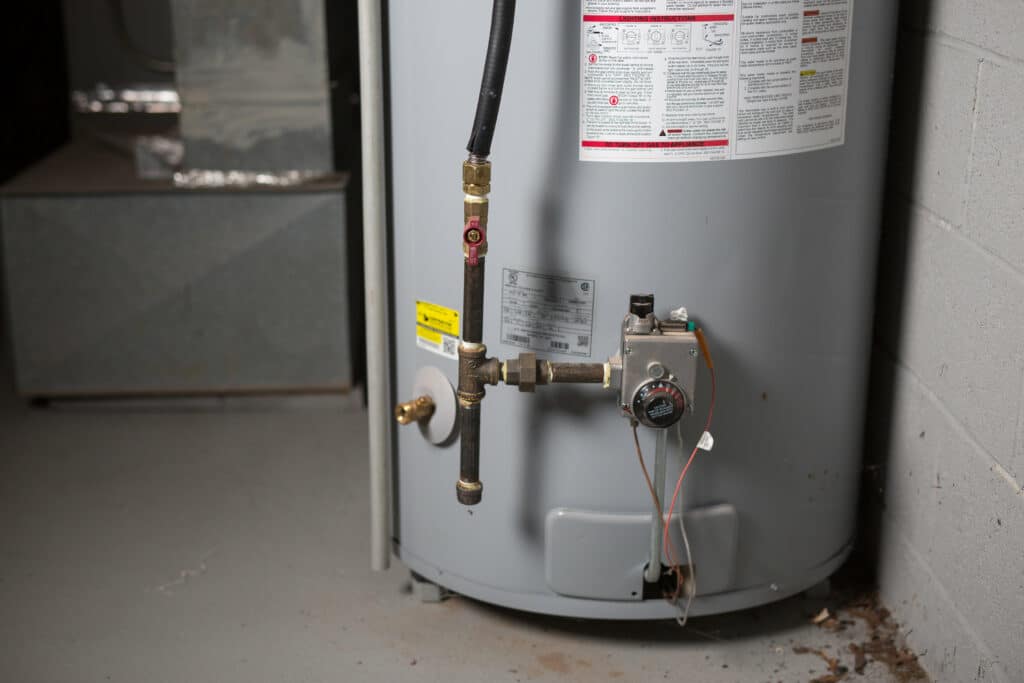
Pros
- Solid Performance and Reliability
- Quick to Warm Up Water
- Relatively Economical
Cons
- Requires an Install Location with Ventilation
- Modifications to Create Ventilation is Expensive
This type of water heater does a fantastic job of getting water warmed up very quickly. This proves useful when large amounts of water need to be warmed up to compensate for a family of 3 or more. Add in the relatively lower costs of natural gas/propane versus electric and it becomes an efficient combo- with one catch.
Because the system is burning fuel, proper ventilation is required in order to keep the occupants of the home safe. Lack of ventilation could result in carbon monoxide poisoning, especially if a leak develops later on in its life.
With proper ventilation, this danger is alleviated. However, not every home has this infrastructure in place. And as for installing ventilation into an existing home, it can be a very expensive job altogether if the water heater is in a less accessible location.
Oil Water Heaters
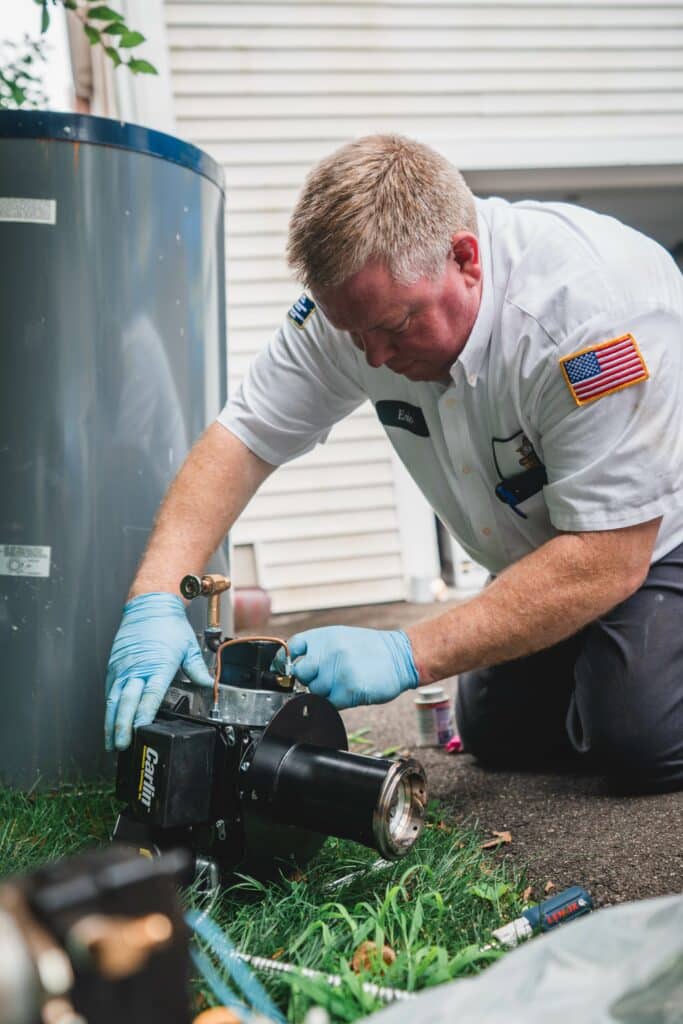
Pros
- Most Efficiency
- Best Recovery in Heating Water
- Very Reliable Performance
Cons
- Requires Ventilation
- Limited by House Layout
- Space Needed for Oil Tank
Oil-fired water heaters have an edge over gas-fired units in terms of efficiency and recovery rate. It’s a fantastic option if your home is spread out and your family is large.
You would have to consider in the long run if you’d save more with either gas or oil due to varying prices of both depending on location.
This type of water heater has similar requirements as gas-fired for needing ventilation along with the addition of needing the space for an oil tank.
Also, because of the petroleum-based fuel it burns, it doesn’t run as clean as gas; something to keep in mind if you desire a more greener option.
Tankless Water Heaters
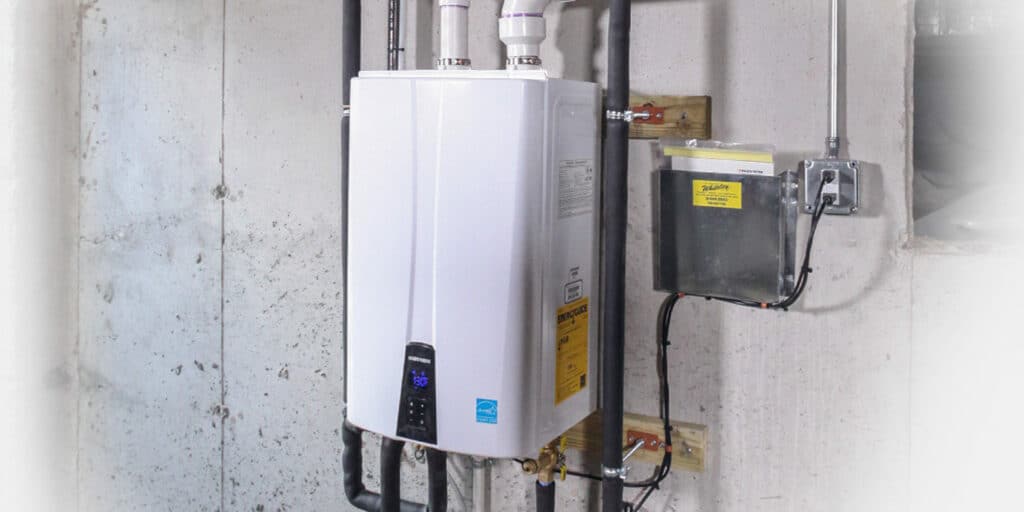
Pros
- Compact Sizing
- Heating is On-Demand = More Energy Saved
- Perfect for small apartments or homes
Cons
- Gas Source Required = Ventilation Required
- Small Water Capacity
- Smaller Water Lines Susceptible to Buildup & Clogs
These types of water heaters are the most compact of the options available, which makes it a great fit in small homes and apartments, especially if hot water isn’t needed often.
As the name implies, this unit lacks a tank and instead heats the water on-demand. For homeowners that don’t need a lot of hot water, this can be huge for energy savings.
However, it has to work extra hard to compensate for any large loads of hot water needed. A quick shower or a load of laundry is no problem, but simultaneous showers could overload the system. The smaller water lines have the potential to clog from mineral buildup, so regular maintenance is needed to prevent that.
Indirect Water Heaters
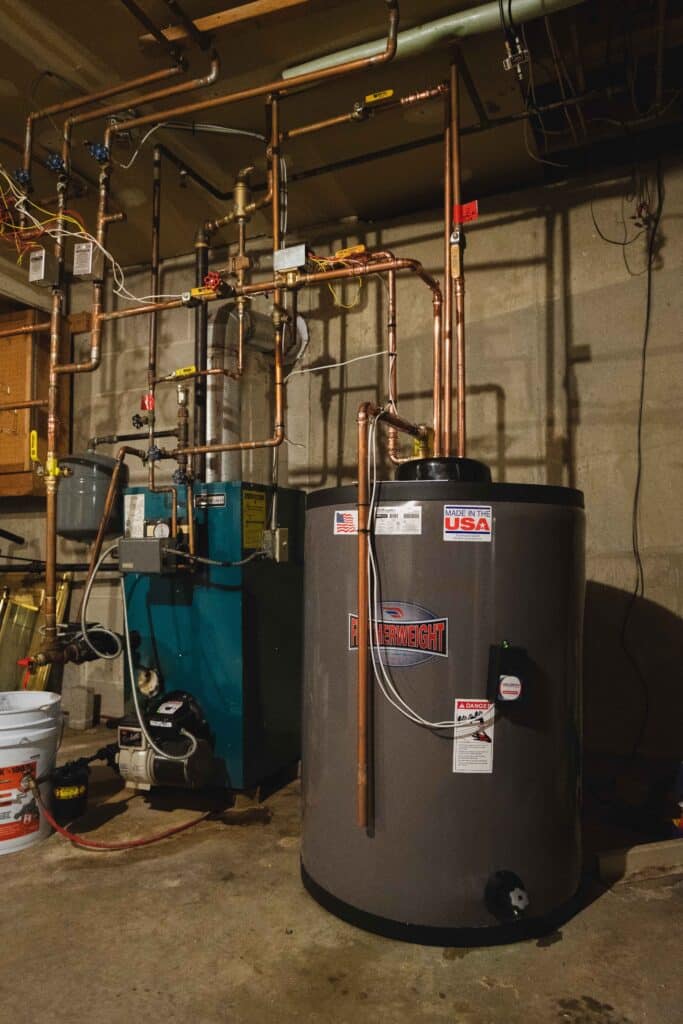
Pros
- Extremely efficient in heating water
- Uses existing heat from boiler to heat water
- Relatively large tanks = large hot water reserve
Cons
- Exclusive to homes with boilers
- Requires extra space near the boiler to install
- Not ideal if hot water is seldom used; tankless would be more efficient for that scenario
These types of water heaters are fantastic options and excel in their efficiency as they piggyback off the hot water lines of a home’s boiler to heat the tank itself. A home with large families and/or many simultaneous hot water appliances would benefit greatly from this water heater.
Because of how it works, a homeowner would only need one source of fuel (oil or natural gas) to run the boiler and heat the water simultaneously as opposed to needing a separate fuel system, thus saving the homeowner both energy & fuel.
The heat recovery time is relatively quick and the system is reliable due to less moving parts.
The only critical requirement is the home must already have a boiler or at least be compatible with one. Without it, this option is unfortunately out of the question.
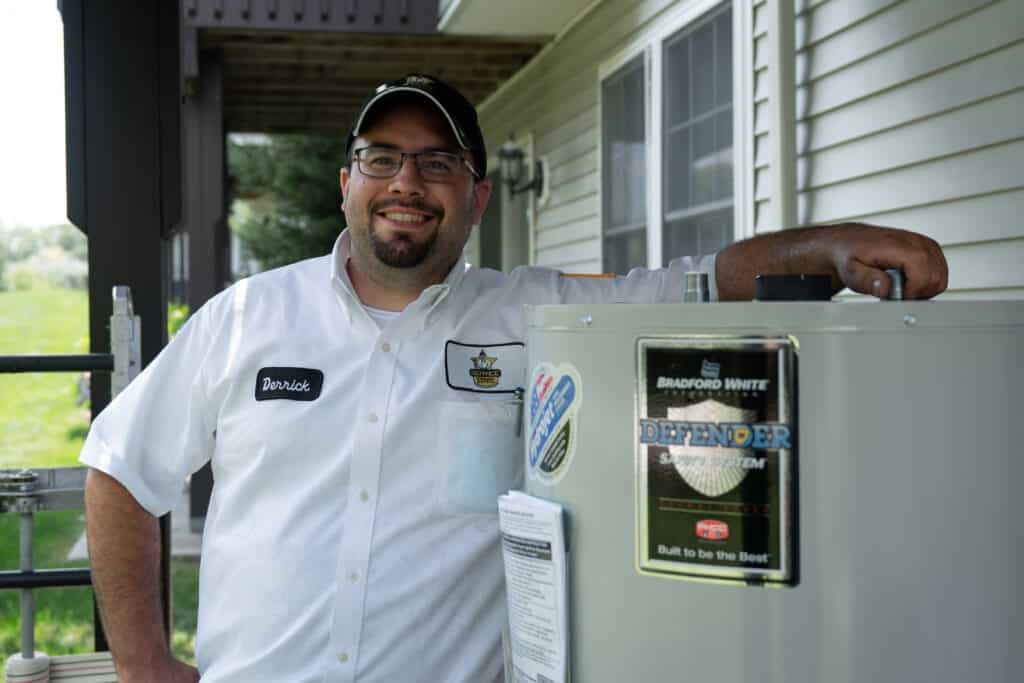
We hope that this week’s blog post provided our home-owning readers some more insight into water heaters. Please stay tuned for next week’s post! If you missed out on last week’s post about toilets, check it out here! ⭐️
Credit/Photo Sources
https://www.homeserve.com/sc/plans/waterheaterrepair
Everything You Wanted to Know About Tankless Water Heaters
